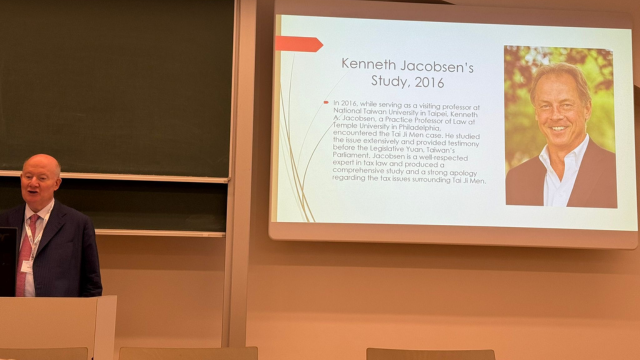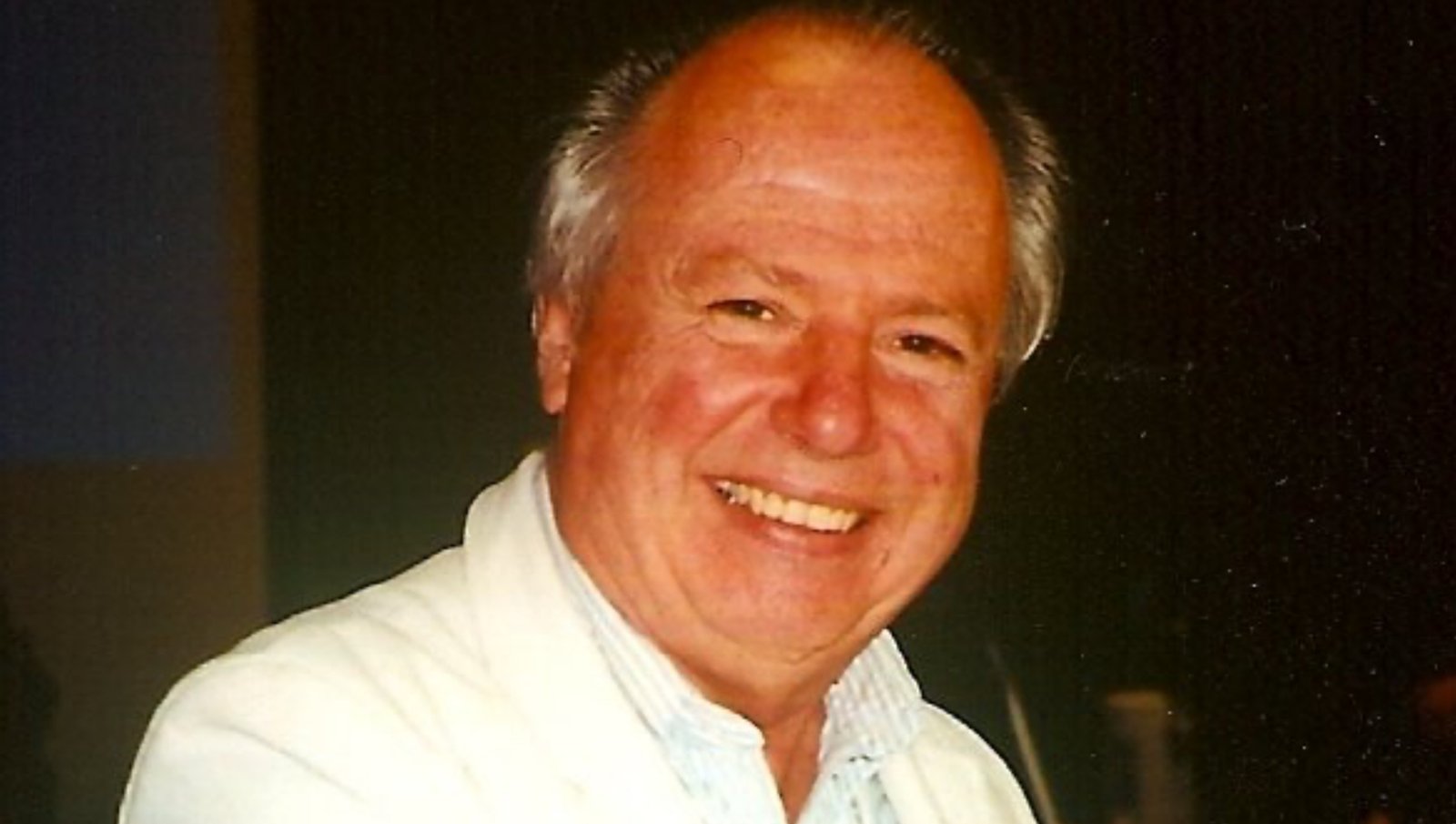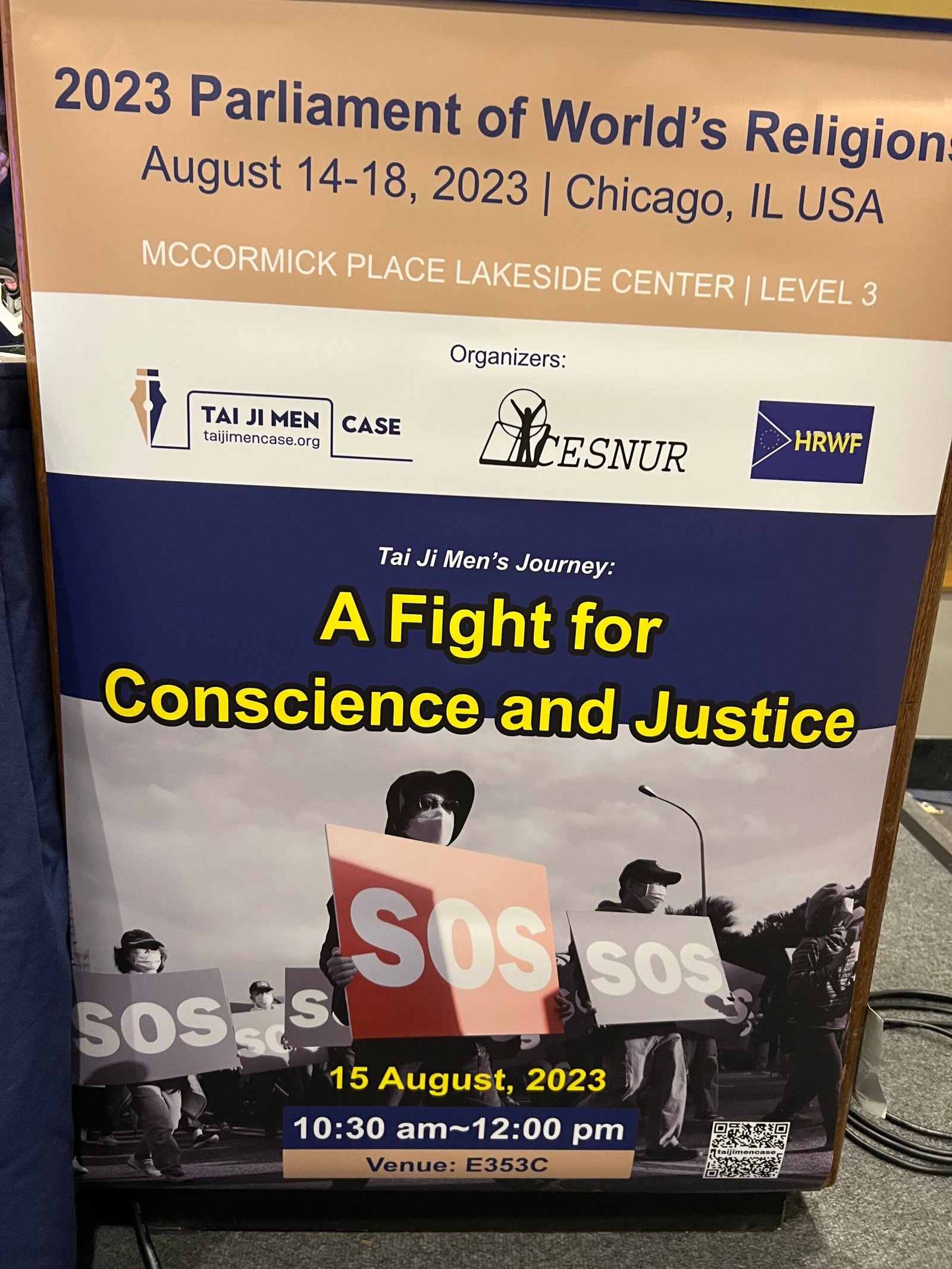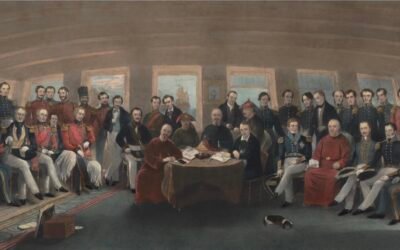Scholars have produced more than 600 texts about the issue in a few years. It is a unique phenomenon that deserves to be studied.
by Massimo Introvigne*
*A paper presented at the annual conference of the European Academy of Religion, Vienna, Austria, July 11, 2025.

Opponents of “cults” sometimes argue that mainstream scholars of new religious and spiritual movements tend to focus on groups that have unusual beliefs and practices, especially those related to alternative approaches to sexuality. They find these groups more intriguing. Critics contend that this focus may “normalize” potentially harmful movements.
This theory is contradicted by the significant attention that scholars have given to the Tai Ji Men case. Tai Ji Men’s beliefs are not particularly unusual, nor are there alternative approaches to sexuality. As of July 11, 2025, scholars have contributed 555 magazine articles, 20 peer-reviewed journal articles, and participated in more than 100 seminars, webinars, and conference sessions on the case (all conveniently documented on the site TaiJiMenCase.org). This unique phenomenon warrants further study and explanation.
The Tai Ji Men case started in 1996, when, as part of a politically motivated purge against spiritual movements, Taiwan’s Prosecutor Hou Kuan-Jen raided 19 Tai Ji Men academies and private homes of disciples (dizi). The Shifu (Grand Master) of Tai Ji Men, Dr. Hong Tao-Tze, his wife, and two dizi were detained on fraud and tax evasion charges.
In 2007, confirming first- and second-degree verdicts, Taiwan’s Supreme Court declared all Tai Ji Men defendants innocent of all charges, including tax evasion. However, the National Taxation Bureau ignored the decision and imposed ill-founded tax bills. It subsequently reduced all tax bills to zero except the one for 1992. Based on the latter, in 2020, it seized, unsuccessfully auctioned off, and nationalized land regarded as sacred by Tai Ji Men and intended for a self-cultivation center, generating widespread protests.
1. The Time of Pioneers, 2010–2019
The first text on the Tai Ji Men case by a Western scholar was written in 2010 by René Wadlow, a US-born French academic who cooperated with Dr Hong in the Association of World Citizens (AWC), for the United Nations, rather than for a scholarly publication. It marked the beginning of the “time of pioneers,” a first phase in the Western academic study of the Tai Ji Men case. It was characterized by isolated analyses from early scholars who engaged with it.
On November 9, 2010, Wadlow, on behalf of the AWC, submitted a complaint under the 1503 procedure to the Human Rights Council (HRC) regarding the Tai Ji Men case. The 1503 procedure invites the HRC to investigate human rights issues. Taiwan is not a member of the United Nations, but nothing prevents the HRC from investigating it anyway.

The complaint thoroughly deconstructed the tax case against Tai Ji Men, demonstrating that it violated fundamental principles of both domestic and international law. It was composed with academic rigor and can be regarded as the first Western scholarly examination of the case.
In 2016, while serving as a visiting professor at National Taiwan University in Taipei, Kenneth A. Jacobsen, a Practice Professor of Law at Temple University in Philadelphia, encountered the Tai Ji Men case. He studied the issue extensively and provided testimony before the Legislative Yuan, Taiwan’s Parliament. Jacobsen is a well-respected expert in tax law and produced a comprehensive study and a strong apology regarding the tax issues surrounding Tai Ji Men.
2. The Time of Hopes, 2019-2024
On March 11, 2019, Taiwanese President Tsai Ing-wen inaugurated the “Civil Society Dialogue on Securing Religious Freedom in the Indo-Pacific Region” at the Howard Plaza Hotel in Taipei, Taiwan. Through this event, Taiwan clearly aimed to promote itself as a beacon of freedom of religion or belief in East Asia.
A delegation from CESNUR (the Center for Studies on New Religions) and its daily magazine “Bitter Winter” was invited to the event in Taipei to present our work on violations of religious liberty in Mainland China. The delegation consisted of Massimo Introvigne, Rosita Šorytė, and Marco Respinti.
Some Tai Ji Men dizi gathered outside the event venue to inform delegates about their case. This was our first encounter with Tai Ji Men. In the following days, we were invited to visit their facilities, where we learned more about their organization and case.

We were impressed to learn about the case and the wide-ranging international peace initiatives of Tai Ji Men, which led us to study Dr. Hong’s work. We shared our discoveries with friends in Turin, Italy, who organized an event called FIRMA (International Festival of Religions, Music, and Arts) in conjunction with the Turin Book Fair. The FIRMA organizers honored Dr. Hong with the Global Peace Award he received on May 13, 2019. Representatives from various institutions in Turin and the U.S. Department of State were also present at the ceremony.
The second Taiwan International Religious Freedom Forum occurred in Taipei from May 29 to June 1, 2019. I was one of the speakers, and two Tai Ji Men dizi participated.

COVID-19 disrupted the transnational discussion regarding the Tai Ji Men case. However, during the lockdown, we continued to engage with colleagues in several countries about the case. A webinar was held on July 21, 2020. On September 16, twelve scholarly and human rights organizations wrote to President Tsai on the case. The Ministerial to Advance Religious Freedom, initially scheduled for November in Warsaw, took place primarily online. We organized an online side event on the Tai Ji Men case on November 19, 2020, featuring the premiere of the documentary “A Question of Justice: The Tai Ji Men Tax Case,” which I directed. This marked the beginning of the second phase of scholarly study on the Tai Ji Men case—a period of internationalization and advocacy, during which scholars believed a resolution to the case could soon be achieved.
The initial team that visited Taiwan (Introvigne, Šorytė, and Respinti) was soon integrated by Willy Fautré and Alessandro Amicarelli, the leaders of Human Rights Without Frontiers and the European Federation for Freedom of Belief. All were co-authors of a white paper on the Tai Ji Men case launched through another webinar on December 10, 2020, Human Rights Day.
As COVID-19 gradually subsided, webinars became regular. Since 2020, online seminars have continued to occur monthly, twice a month, or every two months. This initiative sparked global interest and enabled scholars from all continents to participate. Additionally, it provided a platform for many dizi to share their heartfelt testimonies regarding the case.
The presence of Eileen Barker, arguably the world’s most famous sociologist of religions, in several Tai Ji Men events attests to the level of scholarly interest generated. In January 2024, she spent several days in Taiwan and deepened her knowledge of Tai Ji Men and the case.

Scholars also participated in various seminars in person. CAP-LC, an NGO accredited by ECOSOC, submitted several written statements regarding the Tai Ji Men case to the UN Human Rights Council in Geneva. Sessions were regularly organized at the most prestigious international scholarly conferences, from Australia to the United States. This process began with the annual meeting of the Association for the Sociology of Religion, which took place online on August 8, 2021, due to COVID-19. Additionally, events were held during the International Religious Freedom Summits in Washington, D.C., in 2021 and 2023. Washington also hosted an important press conference on the case on December 7, 2021, where I had the opportunity to speak.
From April 5 to April 11, 2023, a delegation of twelve scholars and leaders from Western human rights organizations, including me, visited Taiwan. During our visit, we discussed the Tai Ji Men case and held meetings with local officials, including the Presidents of the Legislative Yuan and the Control Yuan. Everyone we spoke with expressed understanding, suggesting that a resolution to the case might be within reach.
In 2021, the Parliament of the World’s Religions was also held online due to COVID-19. Its program included a video performance and a roundtable discussion on the Tai Ji Men case. Finally, in August 2023, Tai Ji Men participated with a large delegation at the Parliament of the World’s Religions in Chicago, which featured an event focused on the Tai Ji Men case.

In October 2023, during the grand opening of two new Tai Ji Men Qigong Academies, and in April 2024, as part of the ceremonies honoring the late Madam Yu Mei-Jung—the wife of the movement’s Shifu (Grand Master) Dr. Hong—numerous scholars from various continents gathered in California. They deepened their knowledge of Tai Ji Men and held public initiatives related to the Tai Ji Men case.
On May 11, Dr. Hong received the Global Peace Award at the International Book Fair in Turin as part of his tour of Italy. During this trip, he visited the Italian Senate and had a historic meeting with Pope Francis. Many scholars believed the international recognition of Tai Ji Men and Dr. Hong’s work would help resolve the case. Unfortunately, this was not the outcome.
3. The Time of Reflection, 2024–
On August 2, 2024, disappointment struck the Tai Ji Men and the scholars who had hoped for a resolution in their case. Tai Ji Men had presented the Taichung High Administrative Court with a new opportunity to address the issue by filing a lawsuit seeking a refund for any amounts that could be considered payment for the fabricated 1992 tax bill. Unfortunately, the judges in Taichung did not seize this opportunity and ruled against Tai Ji Men.

The scholarly reflection had to confront the reality of the situation. It is possible that the Tai Ji Men case will not be resolved soon, even though finding a resolution would be fair, logical, and advantageous for Taiwan’s international reputation. Scholars began to approach the case with greater reflectivity, slightly slowing the pace of public events. They sought to study Taiwan’s context and the deeper reasons contributing to this paradoxical situation, which they found difficult to understand.
Meanwhile, Tai Ji Men has provided the world with another significant resource, beyond its well-known peace initiatives. This includes over 600 articles, documents, and speeches by scholars and human rights activists from various continents that examine different aspects of freedom of religion or belief, all stemming from the Tai Ji Men case. This collection is unprecedented in scholarly studies on new religious and spiritual movements.
Scholars have been drawn to this case due to the paradigmatic use of tax laws to target a spiritual minority and the ongoing unresolved status of a case that everyone in Taiwan agrees should be concluded.
As a result, the Tai Ji Men case has become a symbol of the challenges surrounding spiritual freedom in democratic nations. It remains a story that has yet to reach its conclusion.

Massimo Introvigne (born June 14, 1955 in Rome) is an Italian sociologist of religions. He is the founder and managing director of the Center for Studies on New Religions (CESNUR), an international network of scholars who study new religious movements. Introvigne is the author of some 70 books and more than 100 articles in the field of sociology of religion. He was the main author of the Enciclopedia delle religioni in Italia (Encyclopedia of Religions in Italy). He is a member of the editorial board for the Interdisciplinary Journal of Research on Religion and of the executive board of University of California Press’ Nova Religio. From January 5 to December 31, 2011, he has served as the “Representative on combating racism, xenophobia and discrimination, with a special focus on discrimination against Christians and members of other religions” of the Organization for Security and Co-operation in Europe (OSCE). From 2012 to 2015 he served as chairperson of the Observatory of Religious Liberty, instituted by the Italian Ministry of Foreign Affairs in order to monitor problems of religious liberty on a worldwide scale.



